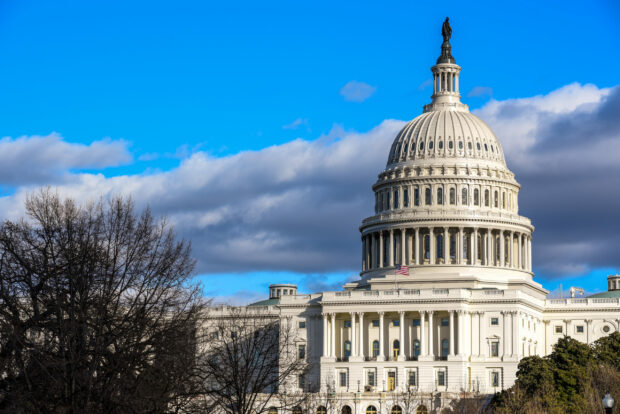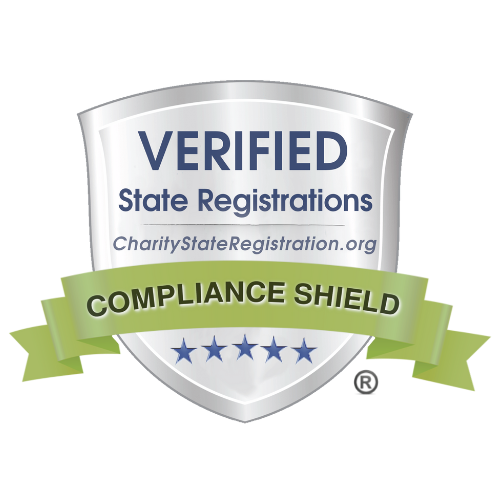IAVA | July 11, 2017
Read: IAVA Statement before the SVAC On Pending Legislation

Statement of Tom Porter
Legislative Director
of
Iraq and Afghanistan Veterans of America
before the
Senate Veterans Affairs Committee
hearing on
Pending Legislation
July 11, 2017
Chairman Isakson, Ranking Member Tester, and Members of the Committee:
On behalf of Iraq and Afghanistan Veterans of America (IAVA) and our more than 425,000 members, thank you for the opportunity to share our views on the legislation under consideration today. For thirteen years, IAVA has been the preferred empowerment organization for Post-9/11 veterans. IAVA’s “Big 4” Policy Priorities for the 115th Congress are to Fully Recognize and Improve Services for Women Veterans, Defend Veterans Education Benefits—particularly the Post-9/11 GI Bill, reducing Military/Veteran Suicide, and reforming the VA.
This year, we have tackled women veterans issues head on by launching our She Who Borne The Battle campaign, a critical component of which is the Deborah Sampson Act (S. 681), by Sens. Tester and Boozman, to improve recognition and services for women veterans. We would also like to thank you for taking action to recently enact of the VA Accountability and Whistleblower Protection Act (P.L. No: 115-41) to provide strong tools to for Secretary Shulkin to bring accountability to his Department.
There are few issues more important to the healthy transition home for our generation of veterans than ensuring a veteran-centric, exceptional, and sustainable VA. Since passage of the Veterans Access, Choice, and Accountability Act in 2014 after the Phoenix VA scandal exposed similar problems with VA medical centers around the country, IAVA has worked with our VSO partners, the VA, and Congress to ensure that veterans have access to the timely and quality healthcare they deserve. We would like to thank Committee leaders, Sen. Crapo, and the VA for putting forth various proposals to get at the heart of this matter. Although they differ significantly in some respects, no one can doubt your sincerity and strong desire to make improvements in the lives of those who have served in uniform.
According to the VA, over 60% of post-9/11 veterans use VA health care. This is consistent with what we have seen from IAVA’s most recent member survey, which informed us that 28% use VA exclusively, while another 38% use the VA in combination with another health care plan.
IAVA is also concerned about the massive investment in VA’s still unproven Choice program. IAVA members have given Choice very mixed reviews in our annual survey. The President’s budget calls for a $28 billion increase to the VA Choice program over the next decade –15% of the funding overall. Yet only 20% of IAVA member survey respondents have actually used the program. Of those, only 37% rated the Choice program as above average/excellent, while 34% rated it as average and a concerning 28% rated it as below average/poor.
As more veterans return and as we face the challenges of physical and mental injuries, we need to know that the VA will deliver for us.
IAVA has testified previously that our members hope to see the VA offer an integrated network of care that provides timely access to high-quality, comprehensive, and veteran-centric care, that includes community providers led by VA primary care providers managing the veterans’ care. Non-VA community care should be fully integrated to fill gaps and expand access, NOT displace VA.
Such a model can be beneficial to both VA and community providers, mentoring community providers to develop a cultural competency for the injuries that veterans present with and providing support to the VA so it can ensure all veterans seeking care are accessing it in a timely manner.
Of note, a 2014 RAND report found that most community-based mental health providers are not well prepared to take care of the special needs of military veterans and their families.
Further, IAVA believes 40-mile and 30-day standards are arbitrary access standards; Decisions about when and where vets can receive medical treatment should be clinical – between the veteran and his or her doctor.
VA provides a unique model of care, one that treats the physical, psychological, social and economic aspects of health; it can benefit from private sector support and the private sector can benefit from its unique model of care.
Because the Committee’s discussion drafts have only been available for a very short time, IAVA strongly encourages SVAC to provide for a thorough and public review, through hearings and roundtable discussions of the various proposals, with participation by our VSO colleagues and VA leaders. Too much is at stake to rush consideration of these proposals and we must get this right.
Among the remaining legislation, I testified before this same Committee last Congress in support of Sen. Tester’s Grow Our Own Directive and am pleased to once again. Currently, veterans who served in the medical field have the opportunity to work at the VA through the Intermediate Care Technicians Pilot Program, but they do not receive the additional training they need to advance their careers at the VA. S. 426 establishes a five-year pilot project to provide veterans with military medical specialties with the opportunity to attain the education and training needed to become a Physician Assistant at the VA.
Through passage of the Grow Our Own Directive, the VA will empower former military medical professionals to launch civilian careers as physicians assistants and increase the number of medical specialists at the VA.
IAVA has been active in calling for the scourge of military sexual assault to be eliminated, and we have also been strongly supportive of efforts to prohibit the sharing intimate images of others online without their consent. Currently, Consistent with these challenges, IAVA supports the Servicemembers and Veterans Empowerment and Support Act (S. 833) to allow veterans and servicemembers who have been sexually harassed online to access VA counseling and benefits. Cyber sexual harassment victims are not currently eligible for these services. It is unfortunate that we have to have these discussions, but until we change the culture of how many in our military treat each other both online and in person, we will need to adjust our priorities to appropriately punish offenders and assist victims.
IAVA is also pleased to support for the Veterans Treatment Court Improvement Act (S. 946) to require the VA to hire additional Veterans Justice Outreach (VJO) specialists in order to ensure veterans have improved access to Veteran Courts and effective treatment. Veterans Courts provide enormous benefits both to veterans and the community. Those convicted through a Veterans Court are put through a rehabilitative program that often includes mental health support, and they avoid criminal sentences if they meet the requirements of the program. This provides veterans with a second chance, but also lowers recidivism rates and saves taxpayers money. Although the program has demonstrated success, the the VA does not have enough VJOs to serve the needs of justice-involved veterans. Importantly, S. 946 helps to close this gap in capacity and IAVA encourages the bill’s swift passage.
For the remaining bills being considered today, IAVA thanks the sponsors for their desire to address these matters and gaps in care, and we are looking forward to hearing the testimony by the VA and other witnesses on the need for these policy changes.
Finally, I would like to call attention to our soldiers, sailors, airmen, Marines, and Coast Guardsmen serving around the world, many in harm’s way. Although America knows that our footprint in Iraq and Afghanistan has been significantly reduced, we are still in combat there and in new locations. Our post-9/11 conflicts may be in the rearview mirror to many, but they continue to be very up close and personal to those at the tip of the spear. THANK YOU to our servicemembers and military families for standing the watch. You can always know that we’ve got your back!
Thank you for your time and attention. IAVA is happy to answer any questions you may have.





